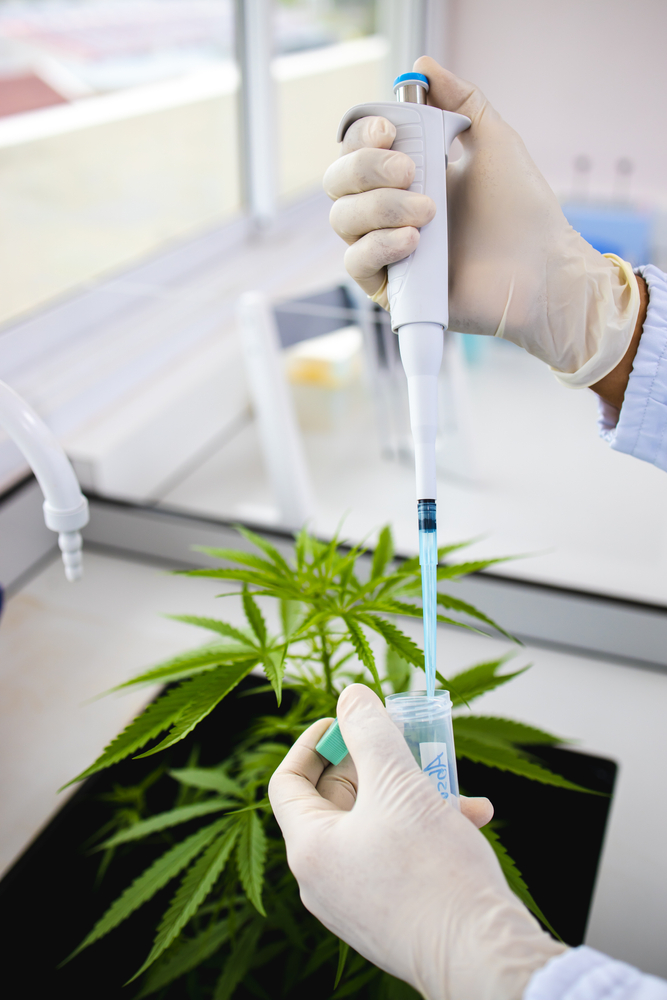Since the ANVISA regulation on procedures necessary for the marketing of cannabis-based products in Brazil, in 2019, the importance of medical cannabis education has gained new outlines in the national territory.
Although the therapeutic use of this plant has already been legalized in more than 40 countries, only recently Brazilian physicians started to seek specialized training in this field.
In the second decade of the 21st century, this subject already adds up to more than 20 thousand scientific papers published all around the world. This proves the relevance of looking further into the subject to make assertive indications and safe and effective prescriptions of cannabinoid derivatives.
That is what we will deal with in this post. If you want to incorporate medical cannabis into your therapeutic arsenal, read on and learn how to deepen your learning!
Phytotherapy and Cannabis-derived products
Phytotherapics are those obtained when using only active raw materials of plant origin. An example are products derived from Cannabis manufactured from the full extract of the plant, called full spectrum.
Products that include isolated active substances are not considered as phytotherapics. Such cases include drugs made with isolated CBD or THC, called phytopharmaceuticals, and synthetic cannabinoids, produced in laboratory.
Both phytopharmaceuticals and synthetic cannabinoids are isolated compounds, that is, made of single molecules. Phytotherapics, in turn, encompass associated molecules and, therefore, multiple and diverse mechanisms of action when compared to isolated compounds.
We can say that, in the category of Cannabis-derived products, only full spectrum Cannabis-derived products can be considered as phytotherapics, that is, those manufactured from the full extract of the plant.
However, due to bureaucratic issues arising from the ban on the cultivation of Cannabis in Brazil, the ANVISA does not list full spectrum products in phytotherapy. The current regulatory scenario lists phytopharmaceuticals, synthetics and phytotherapics in a single category known as Cannabis-derived products..
Full spectrum Phytotherapics versus phytopharmaceuticals and synthetics
As we saw in the previous section, the category named by the ANVISA as Cannabis-derived products encompasses all these drugs: full spectrum, phytopharmaceuticals and synthetics.
Although synthetic cannabinoids and phytopharmaceuticals are similar, these two subcategories are quite different from full spectrum phytotherapics – which have different therapeutic effects compared to the others.
The positive results of using full spectrum phytotherapics of Cannabis stand out in several pathological contexts, such as neuropsychiatric disorders (such as Parkinson, Alzheimer, and Autism), chronic pain (including fibromyalgia), and sleep disorders.
Comparatively, the effectiveness of isolated and synthetic cannabinoids is limited compared to full spectrum products. Another point of attention is the adverse effects of the drugs, which are significantly fewer when using the full plant extract.
>>> About this, read the article Potential Clinical Benefits of CBD-Rich Cannabis Extracts Over Purified CBD in Treatment-Resistant Epilepsy: Observational Data Meta-analysisby Fabricio A Pamplona, Lorenzo Rolim da Silva, Ana Carolina Coan.
An example of this is that synthetic cannabinoids such as dronabinol – which since the 1980s have been used to treat nausea and vomiting associated with chemotherapy – have not had much market penetration until today because patients have little tolerance to the adverse effects of this medication profile.
Why choose full spectrum products?
Full spectrum products have different therapeutic potential because they explore the medicinal properties of hundreds of chemical compounds at the same time. This means that, in addition to the potential already known of the main phytocannabinoids CBD and THC, these formulations also include several other cannabinoid and non-cannabinoid compounds such as terpenes and flavonoids.
Together, all these compounds act in synergy to enhance the therapeutic effects of the drug and, at the same time, modulate possible adverse effects. We call this phenomenon the entourage effect. In practice, prescriptions of full spectrum products demonstrate a better safety and efficacy profile, that is, a lower effective therapeutic dose and a lower incidence of side effects.
If you want to incorporate cannabinoid derivatives into your therapeutic arsenal, learn that the importance of medical cannabis education goes far beyond knowing about the ANVISA regulations. Above all, it is necessary to know in depth the Endocannabinoid System, the therapeutic profile of the main cannabinoids and terpenes, and choose safe and effective products to make assertive prescriptions, and thus, deliver better results to your patients.
The medicinal use of Cannabis-derived phytotherapics requires a different approach and training. WeCann Academy is committed to your learning journey in this knowledge of disruptive potential and offers you an International Certification in Endocannabinoid Medicine, supported by the experiences of professionals from various parts of the world, with extensive prescriptive experience.
Contact us and get ready for this new frontier of Medicine!
References
Chayasirisobhon S. Cannabis and Neuropsychiatric Disorders: An Updated Review. Acta Neurol Taiwan. 2019.
Choi S, Huang BC, Gamaldo CE. Therapeutic Uses of Cannabis on Sleep Disorders and Related Conditions. J Clin Neurophysiol. 2020.
Romero-Sandoval EA, Fincham JE, Kolano AL, Sharpe BN, Alvarado-Vázquez PA. Cannabis for Chronic Pain: Challenges and Considerations. Pharmacotherapy. 2018.




